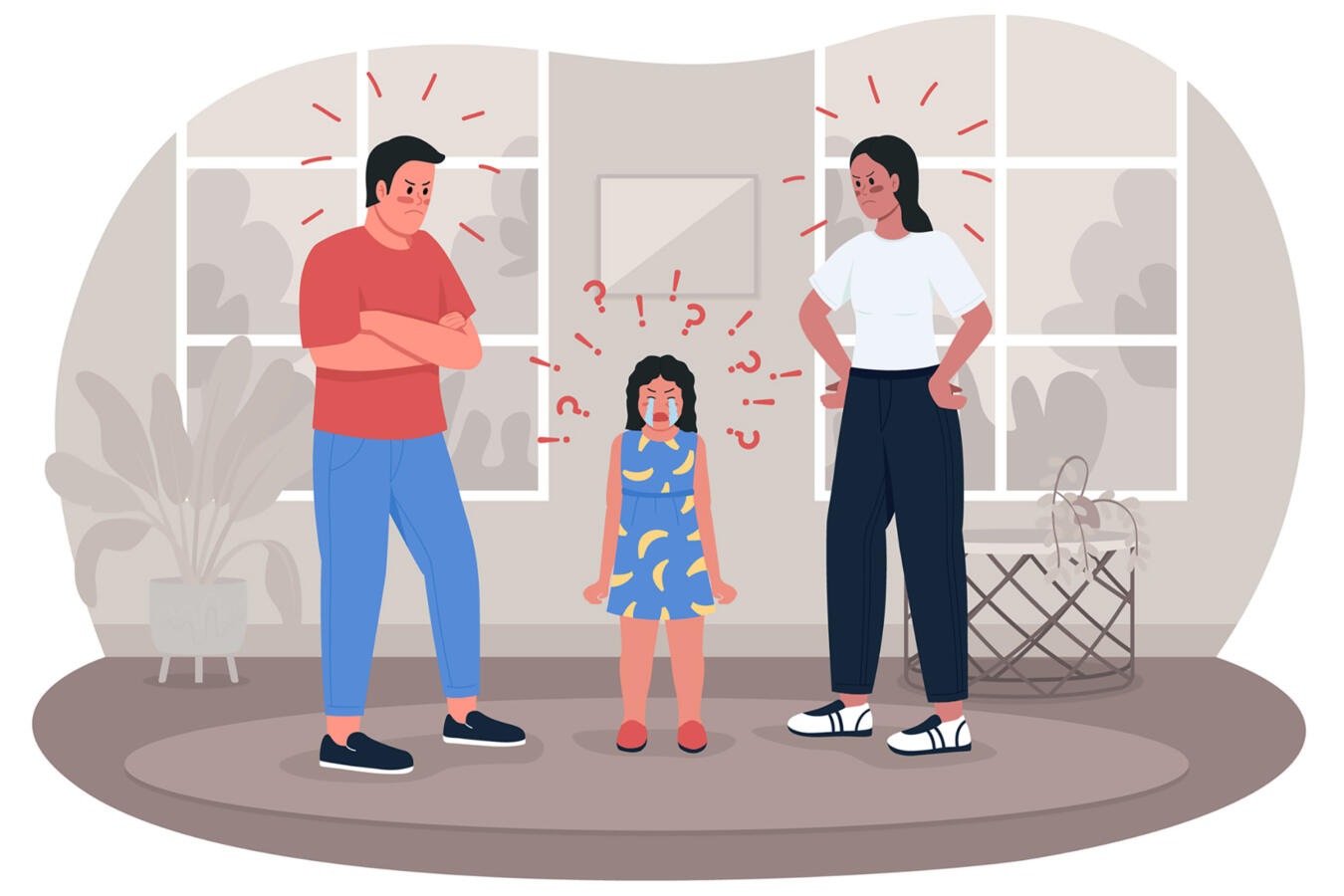What happens when your biggest bully is your parent?
“Oh, you need to go on a diet.” “Look at your grades, what happened? They were so good before.” “Your future partner is never going to put up with you.” These are all statements my parents have said to me. It hurt knowing that these words would come out of my parents’ mouths; some days I would be crying over the little things that they would say.
A Critical Lens
Sometimes, parents or caretakers may make hurtful comments or give faulty or misguided advice. These words regarding weight, gender roles, workload, and everything else under the sun may seem outdated. Oftentimes, these standards are generationally perpetuated – and out of fear. But just because they were true in your parents’ day, doesn’t mean they are true for you.
Multiple scientific research studies were done to fully inspect how a child’s brain can be affected by the commentary of one’s parents/caretakers. “An inability to properly handle situations can lead to developing anxiety disorders down the road. Meanwhile, parenting with a critical, dismissive tone can dampen children’s self-esteem and lead to anxiety or depression. The same can be said for judging your children by their body image or self-worth” (How Parents Affect Their Child’s Mental Health). Mental health roadblocks can be caused by many different factors, but when youth endure incessant comments at home daily, it can transform into a severe problem. The good news is that you can learn how to manage these situations by checking out some helpful ways to cope.
Coping
- Stay true, stay you.
You know who you are better than anyone else. Affirm all your best parts, embrace your flaws, and take steps to be the best version of yourself. Listen to your body – your workload is up to you, and not for anyone else to decide. Destress and rewind by taking up your favorite hobbies, whether painting, singing, reading, or sitting out in nature…
2. Talk to someone you trust.
Find an adult who you trust, whether that is a guidance counselor, teacher, or religious figure to confide in, so they understand the situation occurring and can best know how to support you. “Children and adolescents who have a formal or informal ‘mentor-like’ relationship with someone outside their home are less likely to have externalizing behavior problems (bullying) and internalizing problems (depression)” (Caring Adults: | Child Trends).
3. Take a deep breath.
Exhale for 8 seconds, inhale for 4 seconds, and hold for 7 seconds. Breathing exercises help calm down anxiety and make you more grounded, so you can think clearly and process emotions effectively. Remind yourself that this, too, shall pass.
TikTok for Breathing:
- https://www.tiktok.com/@breathwrk/video/7112913684627918126?is_copy_url=1&is_from_webapp=v1
- https://www.tiktok.com/@breathwrk/video/7112506185315618090?is_copy_url=1&is_from_webapp=v1
- https://www.tiktok.com/@breathwrk/video/7109912284167802158?is_copy_url=1&is_from_webapp=v1
4. Talk to your parent/caretaker.
The best thing you can do is to be open with your parent/caretaker. Set aside time when things are quiet to calmly voice to them why what they are saying is hurting you. They may not realize that what they think they’re saying doesn’t line up with what you hear them saying. Do they want you to do something, but are improperly voicing it? The only way to find out is to talk about it.
At the End of the Day…
Parents and caretakers are just people like everybody else. They make mistakes and make hurtful remarks without meaning to. More often than not, the adults in your life are trying to do the best for their kids with the resources that were given to them and the lessons picked up from those who raised them. They just want you to better yourself and be the best you you can be. So work together, and have a little compassion for each other.






